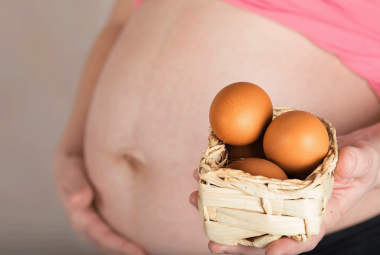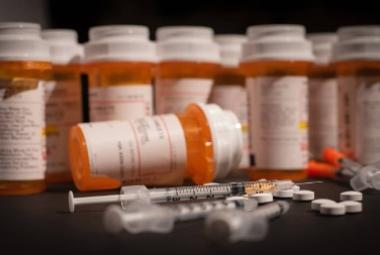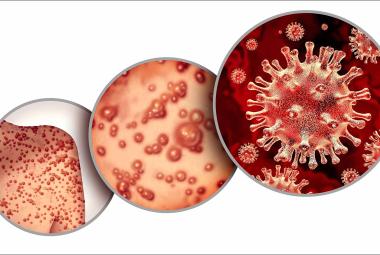Clinical depression is more than just sadness. Although there are clear patterns, the symptoms can be very different from person to person. The most common symptom is called “anhedonia,” or no longer taking pleasure in fun activities. Some people become insomniacs, some sleep most of the day. Other people start abusing drugs and alcohol, while some simply get irritable and short-tempered. No lab or imaging tests can help diagnose depression, only the clinical judgment of a health-care practitioner. There are several clinical tools available to help diagnose depression. The PHQ-9 is probably the best balance of simplicity and sensitivity.
The medical community uses dozens of drugs for the treatment of depression as well as a host of alternative therapies, including simple things like bright light therapy and nighttime breastfeeding. Some of the commercially available antidepressant drugs are very well studied in relation to breastfeeding mothers. Counseling services are a valuable and effective adjunct to these therapies.
Every medical intervention is a balance between risks and benefits. In the case of maternal depression, the risks of antidepressant drugs must be compared with the dangers of untreated or inadequately treated depression. A depressed person may feel overwhelmed by the demands of pregnancy or infant care. In several studies, women with depression were less likely to follow prenatal care instructions, maintain a healthy weight, or initiate breastfeeding.1, 2 At its worst, cases of depression have also included psychotic features, such as bizarre thoughts or violent behavior, and a significantly increased risk of suicide.3-5
A proper discussion of the pathogenesis of depression is beyond the scope of this article. Predictors of depression include genetic heritage, organic disease states, childhood adversity, and instability in a person’s home life. Research has also found that even difficult labor is associated with increased risk of depression.6 A depressed woman with a young child may need some help making peace with her birth experience.
Untreated or poorly treated maternal depression also negatively affects the child. Even in the womb, studies say that a child is vulnerable to the mother’s psychological distress and may have impaired behavioral, cognitive, and psychomotor development as a result.7, 8 Mothers who are depressed often view themselves as bad parents and may find certain parenting challenges insurmountable. Depressed women are less likely to initiate breastfeeding and tend to abandon breastfeeding earlier than euthymic women.9 In addition to its nutritional benefits to cognitive development, breastfeed also appears to reduce the risk of adult depression. Even in older children, maternal depression can lead to long-term dysfunction, either directly or indirectly via disruption of a healthy home life.10
If you or someone you know is hurting, these resources can be a good first step to getting back on track:
http://www.postpartum.net/ (1-800-944-4PPD)
Suicide prevention hotline (1-800-273-8255)
James Abbey, MD
InfantRisk Center
References:
- Figueiredo B, Canario C, Field T. Breastfeeding is negatively affected by prenatal depression and reduces postpartum depression. Psychological medicine. Apr 2014;44(5):927-936.
- Grigoriadis S, VonderPorten EH, Mamisashvili L, et al. The impact of maternal depression during pregnancy on perinatal outcomes: a systematic review and meta-analysis. The Journal of clinical psychiatry. Apr 2013;74(4):e321-341.
- Bonari L, Pinto N, Ahn E, Einarson A, Steiner M, Koren G. Perinatal risks of untreated depression during pregnancy. Canadian journal of psychiatry. Revue canadienne de psychiatrie. Nov 2004;49(11):726-735.
- Larsson C, Sydsjo G, Josefsson A. Health, sociodemographic data, and pregnancy outcome in women with antepartum depressive symptoms. Obstetrics and gynecology. Sep 2004;104(3):459-466.
- Oates M. Suicide: the leading cause of maternal death. The British journal of psychiatry : the journal of mental science. Oct 2003;183:279-281.
- Ding T, Wang DX, Qu Y, Chen Q, Zhu SN. Epidural labor analgesia is associated with a decreased risk of postpartum depression: a prospective cohort study. Anesthesia and analgesia. Aug 2014;119(2):383-392.
- Davalos DB, Yadon CA, Tregellas HC. Untreated prenatal maternal depression and the potential risks to offspring: a review. Archives of women's mental health. Feb 2012;15(1):1-14.
- Kingston D, Tough S, Whitfield H. Prenatal and postpartum maternal psychological distress and infant development: a systematic review. Child psychiatry and human development. Oct 2012;43(5):683-714.
- de Jager E, Skouteris H, Broadbent J, Amir L, Mellor K. Psychosocial correlates of exclusive breastfeeding: a systematic review. Midwifery. May 2013;29(5):506-518.
- Beck CT. The effects of postpartum depression on child development: a meta-analysis. Archives of psychiatric nursing. Feb 1998;12(1):12-20.







